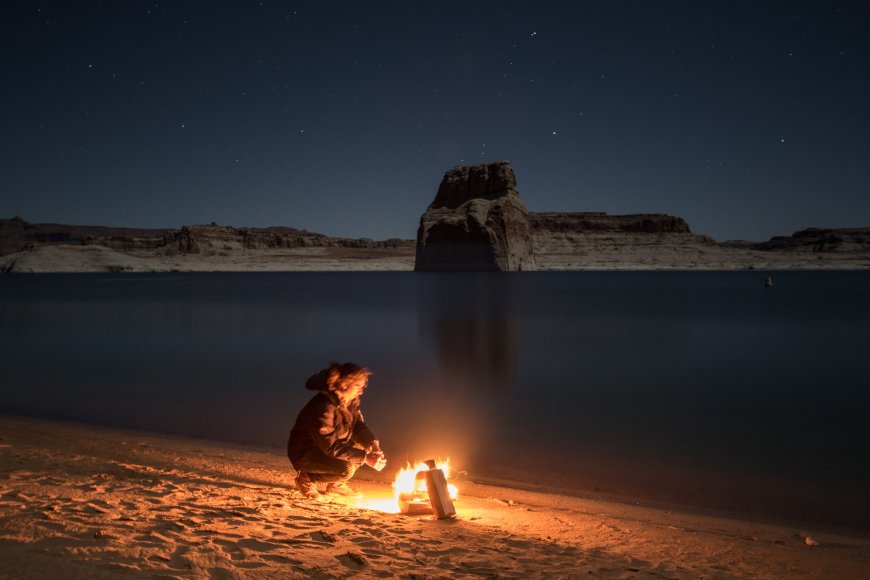The Science of Human Survival: A Look into Our Innate Abilities
Dive into the world of human survival science, exploring our innate abilities to survive and adapt. Discover the intriguing facts and theories behind our remarkable resilience and determination to survive against all odds

Surviving Against All Odds: The Science Behind Human Survival
Humans have always been survivors. From the dawn of our species, we have faced countless challenges and threats, yet we have managed to survive and flourish. This incredible survival ability is not just a testament to our resilience but also a fascinating subject of scientific exploration. Let's delve into the science behind human survival, focusing on our innate abilities and the evolutionary traits that have enabled us to conquer the harshest of environments and the most challenging situations.
Human Survival: The Role of Evolution
Our survival skills are not merely a result of our intelligence or physical strength; they are deeply rooted in our evolutionary past. Our ancestors had to survive in harsh conditions, and over millions of years, they developed certain traits and abilities that enhanced their survival chances. These traits, including our exceptional endurance, adaptability, and problem-solving skills, have been passed down through generations, forming the foundation of our survival abilities.
Survival Skills: More Than Just Physical Strength
When we think of survival, we often imagine physical feats like running fast or being strong. However, survival goes beyond physical abilities. It involves mental and emotional resilience, strategic thinking, and problem-solving skills. These cognitive abilities allow us to assess situations, make decisions, and devise strategies to overcome challenges, which are critical in survival scenarios.
Human Adaptability: Our Secret Weapon
One of the most remarkable aspects of human survival is our adaptability. We can survive and thrive in a wide range of environments, from the icy realms of the Arctic to the scorching deserts of the Sahara. This adaptability stems from our ability to use tools, manipulate our surroundings, and learn from our experiences. We can adjust our behavior, develop new skills, and change our strategies based on the challenges we face, making us incredibly adaptable survivors.
Survival without certain necessities greatly depends on various factors like an individual's health, the environment, and other specific conditions. However, in general:
-
Food: The human body can survive without food for about 3 weeks, but this can greatly vary depending on an individual's body fat and metabolic rate. However, the body will start to suffer significant damage after the first few days as it shifts into a starvation mode.
-
Water: Humans can usually survive without water for about 3-5 days. This can depend on the individual's health and the environmental conditions. For instance, in a hot environment where an individual is sweating, dehydration may occur much faster.
-
Oxygen: Brain damage can start to occur after about 4-6 minutes without oxygen. After about 10 minutes, the damage can be irreversible, potentially leading to death.
-
Other people: Humans are social animals, and prolonged isolation can have significant mental health impacts, such as depression or anxiety. However, physically speaking, a human could technically survive indefinitely without other people, assuming they had the skills and resources to find food, water, and shelter.
-
Cold: This depends on the degree of cold. Hypothermia can set in when the body's core temperature drops below 95°F (35°C), and this can be lethal. With the right clothing and shelter, humans can survive in very cold conditions indefinitely. Without protection, death can occur in under an hour in extremely cold conditions.
-
Heat: Similar to cold, survival in heat depends on the degree of heat and access to water. Heat stroke can occur when the body's core temperature rises above 104°F (40°C), and this can be lethal. With sufficient water and shelter, humans can survive in hot conditions indefinitely. Without these, survival may be a matter of hours or days.
Remember, these are just rough averages and actual times can greatly vary depending on many factors. Always prioritize safety and emergency preparedness to avoid such situations.
The Persistence of the Human Spirit
Survival is not just a physical or a mental challenge; it's a test of the human spirit. Our determination and will to survive can often make the difference between life and death. The stories of people surviving against all odds, despite severe conditions or life-threatening situations, highlight the power of the human spirit and the remarkable strength of our survival instinct.
In conclusion, the science of human survival is a complex and fascinating field that explores our innate abilities and the evolutionary traits that have shaped us as survivors. Our survival skills are a testament to our adaptability, resilience, and the indomitable spirit of our species. As we continue to face new challenges and adapt to changing environments, our survival abilities will continue to evolve, reaffirming our status as remarkable survivors.
While we have made significant strides in understanding the science behind human survival, there is still so much to learn. Each new discovery not only enriches our knowledge but also deepens our appreciation for the incredible survival abilities that we often take for granted. After all, survival is more than just a biological process; it's a testament to the strength, resilience, and adaptability of the human species.
Disclaimer: The image(s) featured in this article are for illustrative purposes only and may not directly depict the specific concepts, situations, or individuals discussed in the content. Their purpose is to enhance the reader's understanding and visual experience. Please do not interpret the images as literal representations of the topics addressed.
What's Your Reaction?












































































































